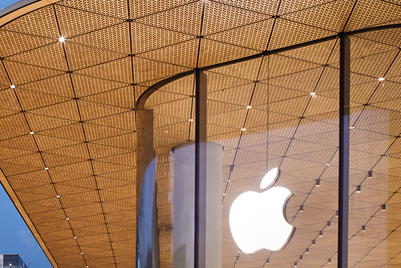
Electrifying is what the industry felt when Ariana Grande wowed her fans inside Epic Games' Fortnite. As the real world begins to merge with the metaverse, it won't take too long before GenZ (almost) completely pivots their social life online. Simultaneously, gaming is growing beyond entertainment as an emerging lifestyle and culture, but despite the promising evolution of the metaverse, there are practical issues to tackle for brands and gaming companies to manage before they can take the plunge, panellists at Game Changers 2021 said.
"There are a lot of interesting partnerships in the metaverse currently," said Rudy Lee, chief strategy officer of Zepeto at a session Attention, Metaverse ahead! Marketers - 5 years from now. "You need to figure out what you're prioritising — sales or less immediately tangible exposure — that will have a say on how innovative your activation will be." In terms of use cases, he added that VR is beset served for training or entertainment, while more accessible AR is going to be more widely used.
One of the challenges for both brand marketers and gaming companies looking to collaborate on the metaverse is howe to enter and be present in this format. "For virtual headsets immersions, there may be some limitations given the size of the device and with users blind, the place of use has to be safe," said Stanley Kim, CEO and Founder of Vive Studios in Korea. "Next year, Apple will launch AR/ VR glasses and that is going to be make this entire industry (much more) popular." Kim spoke to attendees with the help of an interpreter.

Leslie Shanon, head of ecosystem and trend scouting for Nokia contended that rapid technology development and mobile network improvement from LTE to 4G, 5G and beyond would shift the processing power needed (and therefore reduce the form factor) of the device. "If we are going to have a head mounted device like regular eye glasses, you need to take processing off of the device... (the speed of) 5G allows you to move this processing power from the hardware to the network and a stack of servers," she said. "5G and processing in networks are the things that make this magic happen." Already, gear providers such as HTC are working on merging AR and VR devices.
As these pieces come together, it may be difficult for brands and gaming companies to manage their metaverse metamorphosis on their own. "Companies can invite experts from academia and consult with them rather than try to muddle through on their own," said Kim of Vive Studios. "This could be a win-win approach for marketers and brands looking to make a mark in the metaverse and experts in the field."
This is cowboy time, whoever gets there with models that work is going to determine how things evolve.... This is the world of partnerships (so) don't wait too long to make your move.
—Leslie Shanon, Nokia
Lee of Zepeto said that as the interest in this new medium grows, it won't be long before the value of virtual merchandise gets on par with physical ones—for example Super M hoodies versus logo skins—and this could boost investment and interest in this market from brands and gaming companies alike. While the price of NFTs may have begun to surpass the value of physical goods in some niches, it may be some time yet before these virtual assets overhaul the actual GMV of physical products.
Given the rapid development of this space, brands and companies need to hurry and hustle to be noticed. While Kim of Vive compared the current state of the metaverse to the internet bubble of over two decades ago, he did admit that a lot of capital was moving towards the space and companies would need to redouble their efforts to keep up.
Shanon of Nokia agreed that this time resembled the dot-com boom in its energy and flow of ideas and capital. "This is cowboy time, whoever gets there with models that work is going to determine how things evolve," she said. "This is the world of partnerships (so) don't wait too long to make your move."
Finally, consider this: within a week of the launch of the wildly popular Squid Game series on Netflix, coders had released two different (but knock off) gaming experiences on VR chat channels. "The official production company may have missed a chance there," Shanon added.









.jpg&h=268&w=401&q=100&v=20250320&c=1)